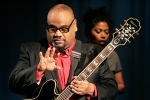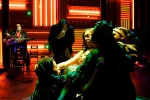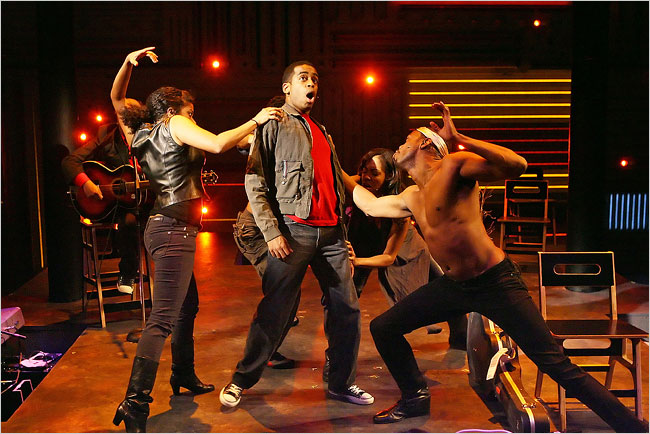Since this past October when I started writing about Black rock, I continue to get indications that we’re in the midst of an exciting cultural shift that’s been building for many years. By that, I mean that this idea of Black rock is manifesting itself in the culture in different forms. Granted, there are a ton of bands and musicians out there. Yes, this has been the case for a while now. But look:
- There are the books by Maureen Mahon and Kandia Crazy Horse.
- Two films—Electric Purgatory and Afropunk—have recently documented the various aspects of this multifaceted scene.
- Then there was the (in)famous New York Times article in January (subscription required) and the resulting Internet brouhaha over the term “blipster”.
- There are the various blogs such as this one, ConnyKate’s or George Kelly’s that recognize that “we are all citizens of an idea”. That idea being Black rock.
So you could easily make the case that Black rock is going beyond music and is picking up momentum as it moves across the cultural landscape. The latest example is the musical Passing Strange, which is running now through June 3 at the Public Theater in NYC. As Brooklyn Vegan rightly notes, it’s “a theatre show that felt as much as a soul/rock concert as it felt like a play.”

Passing Strange is a coming of age story based on the life of the musician Stew (left) who, as a teenage, decided to take off for Europe to be free of the constraints of American society. We never see this kind of story told about African Americans! Rock and the blues call out to this meditating, Eastern philosophy-spouting youth. In 1970s Los Angeles, this puts him seemingly at odds with his no-nonsense mother and her conservative, holier-than-thou fellow churchgoers. Thanks to the encouragement from his church’s choir director during a marijuana-fueled rap session–“Slaves got options: Escape. Revolt. Death. Cowards only have consequences.”–he heads first to Amsterdam and then to Berlin to find a space in which to construct an identity free from the limits of race (or so he thinks), but finds himself still forced to navigate between the often-contradictory influences around him. More importantly, he’s forced to come to terms with the choices, good and bad, that he’s made.
Along the way, the younger Stew (played by Daniel Breaker, who bears a strong resemblance to Dule Hill of Psych fame) encounters, drugs, hash, sex and self-delusion
during his travels. What’s fascinating is the opportunity to watch this story unfold amid powerful music and song and strong acting by a cast that also includes Eisa Davis, De’Adre Aziza, Chad Goodridge and Rebecca Jones. It’s particularly interesting to watch the all-black cast’s spot-on portrayals–often sendups–of Dutch and German characters. The production is staged in a way that puts the four members of Stew’s band—Christian Cassan on drums; Marc Doten on keyboard; Heidi Rodewald on bass; and Jon Spurney on keys and guitar—onstage and part of the action as it unfolds. The actors interact with them liberally, even using their movable platforms and pits as props.
The musical doesn’t wrap up neatly, but this is the messiness of life. I’m not familiar with Stew’s band, the pop rock combo The Negro Problem. But this musical is certainly an indication of enormous talent and mastery of songwriting. In concert with what will appear to be an unfamiliar “Black experience” to some, the 20+ songs that cover a variety of styles and genres make this production an exhilarating and enjoyable experience. It’s time well-spent.
Passing Strange underscores that there are other ways that African Americans can be in the world. It’s the point–the invitation of Black rock–that you can create a rich existence outside the narrow American box of Black authenticity.
Please support this musical. Fortunately, the Public Theater has made it easy to do so. Tickets are regularly $60, but every day there are $20 rush tickets available approximately an hour before curtain (cash only) and there are $35 regular run discount tickets available. Check the Public’s site for more details.
Still not sold? Check out this performance by Stew and his band during the 2006 TED Conference. This song—“Black Men Ski”—is not in the show, but it will certainly give you a sense of his point of view and the critical eye he brings to issues and interactions around race.
Passing Strange on MySpace

